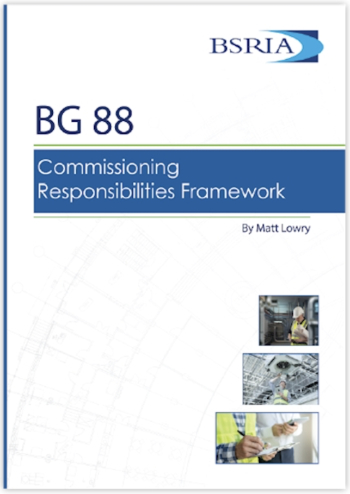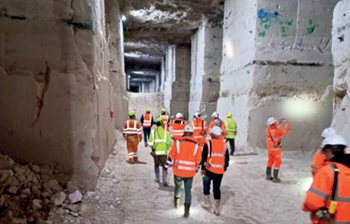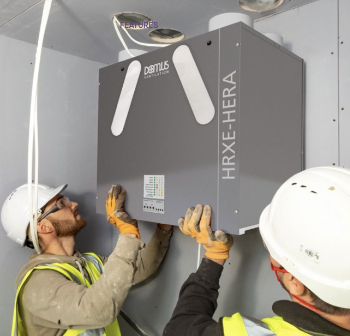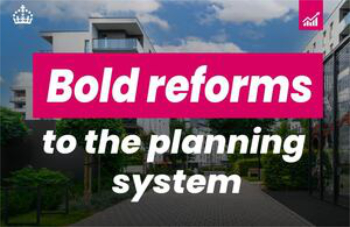ECA highlights importance of electrical sector in devolved nations
On 6 February 2024, leading electrotechnical and engineering services body ECA, whose Members operate in England, Wales and Northern Ireland, announced that it is actively engaging with governments in all three nations to develop their net zero and skills initiatives.
The association engages closely with policy makers in England and Wales to highlight the importance of its Members to reaching each government’s targets for net zero carbon emissions. It is looking forward to working with a restored Northern Ireland Executive, whose net zero target dates are earlier than both other countries.
The Welsh Government acknowledged the contribution of ECA and its member firms to the net zero transition in Wales in its Net Zero Skills Action Plan, published in 2023. In a subsequent submission to Welsh Government on net zero skills ECA pointed out the strategic importance of electrical skills across multiple sectors, including electricity and heat generation, residential buildings, transport, public sector, industry and business.
As electrification in Wales expands, there will be a need to substantially increase the number of qualified electricians. Possible cuts to the apprenticeships budget in Wales, announced before Christmas, are therefore a significant cause for concern.
In Northern Ireland, ECA has consistently championed proper electrical training and qualifications, exemplified by the electrical License to Practice regime, introduced into government construction contracts from 1 January 2016.
More recently, ECA contributed to a call for evidence from the Northern Ireland Public Affairs Committee on Renewable Energy and Net Zero in Northern Ireland. It pointed out that the expertise of the industry has often been overlooked in achieving net zero goals. Yet, they are the interface between consumers, designers, construction and operators.
ECA Head of Public Affairs and PR Jane Dawson said: “ECA acknowledges and understands the differences between the devolved governments and is offering expertise and research backed adaptations to fit each nation’s needs. Electrification is the key to net zero, and it will inevitably require an expansion and development of the electrical contracting industry in England, Wales and Northern Ireland. ECA believes the transition to renewal energy should not be a party-political matter. We are ready and willing to work with all parties across the devolved nations to ensure regulatory frameworks are in place to deliver a safe and reliable electricity network. ECA will continue to gather input and data from our Members and the wider industry to enable the right decisions to be made.”
Research by the Electrotechnical Skills Partnership (TESP), of which ECA is a member, has shown that the UK as a whole needs to increase the number of electricians newly qualifying by up to 500 people per year to meet increased demand for solar PV, and between 200 and 500 people per year to hit targets for EV charging infrastructure.
To combat this issue, the ECA has proposed several policy changes through their Recharging Electrical Skills Charter. This includes increasing the annual number of electrical apprentices starting in England from 7,500 to 10,000. In Wales, the equivalent increase needs to be from an average of around 500 starts to 700 starts per year.
In Northern Ireland, ECA has stressed the importance of a skilled and competent workforce to deliver the nation’s 2030 renewable energy target. NI has tremendous natural resources when it comes to wind generation with 41.1 % of all electricity in NI coming from wind. This is an outstanding start to de-carbonising the grid, however this does not mean that this energy is used well. Focusing on storage solutions is vital.
More work needs to be done to increase the volume of qualified electricians and develop the training opportunities to provide the workforce to help meet net zero goals. To this end, ECA has urged policymakers, industry leaders and educators to build a competent electrotechnical workforce which can deliver the essential expansion of net zero technologies, including solar PV, battery storage and electric vehicle charge points.
To learn more about ECA’s public affairs activity, click here.
This article was issued as a press release by ECA on 6 February 2024.
--ECA
[edit] Related articles on Designing Buildings
Featured articles and news
Commissioning Responsibilities Framework BG 88/2025
BSRIA guidance on establishing clear roles and responsibilities for commissioning tasks.
An architectural movement to love or hate.
Don’t take British stone for granted
It won’t survive on supplying the heritage sector alone.
The remarkable story of a Highland architect.
The Constructing Excellence Value Toolkit
Driving value-based decision making in construction.
Meet CIOB event in Northern Ireland
Inspiring the next generation of construction talent.
Reasons for using MVHR systems
6 reasons for a whole-house approach to ventilation.
Supplementary Planning Documents, a reminder
As used by the City of London to introduce a Retrofit first policy.
The what, how, why and when of deposit return schemes
Circular economy steps for plastic bottles and cans in England and Northern Ireland draws.
Join forces and share Building Safety knowledge in 2025
Why and how to contribute to the Building Safety Wiki.
Reporting on Payment Practices and Performance Regs
Approved amendment coming into effect 1 March 2025.
A new CIOB TIS on discharging CDM 2015 duties
Practical steps that can be undertaken in the Management of Contractors to discharge the relevant CDM 2015 duties.
Planning for homes by transport hubs
Next steps for infrastructure following the updated NPPF.
Access, history and Ty unnos.
The world’s first publicly funded civic park.
Exploring permitted development rights for change of use
Discussing lesser known classes M, N, P, PA and L.
CIOB Art of Building photo contest 2024 winners
Fresco School by Roman Robroek and Once Upon a Pass by Liam Man.

























